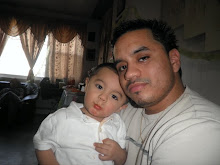
In her story “Yes and No,” Amy Tan tells a story about a time when she crossed a New York Times article that criticized the Chinese culture as being overly modest and passive. The author of the news article draws this criticism because the Chinese language does not have words that directly represent “yes or no,” which the author infers is a result of the Chinese culture’s passive nature. It was not the first time she has heard such assumptions and because she is of Chinese heritage, she felt frustrated by other people’s perceptions of Chinese people as being abnormally polite.
I found it most interesting when Tan began to criticize the suspicious practice of comparing languages. On page 30, Tan makes the claim that “one language-that of the person doing the comparing- is often used as the standard, the benchmark for a logical form of expression,” and as a result, the language that is being compared will always be “lacking.” In that case, is there ever really a language that is lacking?
Is it also unfair to compare a formal language from its common slang? I remember when I was younger I used to talk in slang constantly. I also cursed frequently and when my family would criticize me for my “bad” speaking habits, I could not understand what made my habits so bad. In my eyes, I simply spoke words, and while my family did not agree with the words I chose to use, they always understood what I had to say. Perhaps slang does not fit the standards of the English language, but does that necessary make it deficient?
I found it most interesting when Tan began to criticize the suspicious practice of comparing languages. On page 30, Tan makes the claim that “one language-that of the person doing the comparing- is often used as the standard, the benchmark for a logical form of expression,” and as a result, the language that is being compared will always be “lacking.” In that case, is there ever really a language that is lacking?
Is it also unfair to compare a formal language from its common slang? I remember when I was younger I used to talk in slang constantly. I also cursed frequently and when my family would criticize me for my “bad” speaking habits, I could not understand what made my habits so bad. In my eyes, I simply spoke words, and while my family did not agree with the words I chose to use, they always understood what I had to say. Perhaps slang does not fit the standards of the English language, but does that necessary make it deficient?

No comments:
Post a Comment